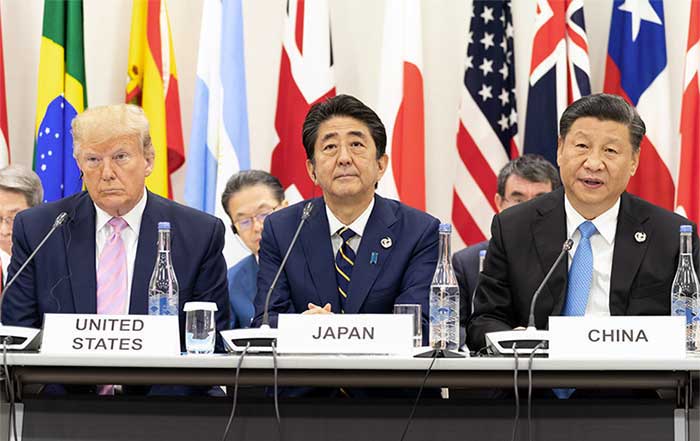There were fears by some economic pundits that this would happen as a direct consequence of the 2019 Osaka Summit. The Big G20 Osaka Summit acknowledged that the world economy was generally stuttering. The conference even seemed to call for sweeping austerity measures to counteract this. Indeed, at some point, there were valid fears that the major currencies of many countries, including China and Japan, would suffer. This was even though these are some of the most stable currencies in Asia and the world. Happily, to boost exports among nations and increase healthy commercial competition, the G-20 Osaka summit, instead made a resolution to discourage the emerging trend from devaluing major world currencies, including that of China.
The summit resolved not to be a party to the trend of using competitive devaluation to achieve economic goals. This seems to be the direction that many other nations also believe is the right way. Moreover, the Beijing government reiterated that China would not allow its national currency, the Yuan to depreciate as the fiscal policy on these exchange rates are clear. Further, all the six major Asian countries who are members of the G-20 concurred with this position. These countries include China, Japan, India, Indonesia, Australia, and South Korea.They all agreed with the decision discouraging countries from engaging in the competitive devaluation of their currencies.
What is the Significance of the New Plaza Accord?
Volatile exchange rates together with disorderly movements can indeed impact the financial stability of any economy negatively. A special communique of the G20 clearly outlined this. It was resolved that the G-20 countries would not target currency exchange rates resulting in competitive devaluation. Indeed, the first Plaza Accord was structured in such a manner that it could even devalue the value the mighty US dollar itself! As the situation stands, the new accord is significantly different from the previous one. The communique itself puts out a direct statement with regards to this.
Will these fiscal policies boost Japan and China's Economy?
The Bank of Japan has introduced negative interest rates in an attempt to hit a two-percent inflation targeted goal. The country has also implemented structural reform. In this strategy, bills have been fostered to strengthen specific structural changes. This also includes labor market reform. Japan has shown that it is adhering to the G-20 agreements and policies. This has been done by the nation's incorporation of all the tools to achieve its balanced goals.
What are the Consequences of the negative interest policy?
The Japanese Yen and the Tokyo stock market fluctuated even when the Bank of Japan suddenly introduced negative interest rates. The Japanese economy is, however, steadily expanding. Regardless, unlike the European and US economy, Japan's economy is much more stable and does not fluctuate too much. This is the reason why the Yen is still widely considered by financial pundits as a relative haven for investors. The exchange rate's movement is, however, quite radical and hard to predict. This poses a problem for whoever wishes to discern whether the Yen's value is actually falling or not
The idea advanced by the adverse interest policy was to effect a reduction of the yield curve's starting point. The curve was projected to decline, thus affecting its short end. The interest rates capped on housing and loans have been significantly reduced by most commercial banks. This was in direct response to the decline of the yield curve. There is, however, a big difference in the effects of the negative interest rates vis a vis the impact of the exchange rate movement on the markets.
What is the Impact of Negative Interest Rates on Banking?
In reality, negative interest rates have little impact on the banking industry. This is a well-designed scheme that only results in a limited increase of reserves to a rate of about 0.1 percent. The rest of the reserve continuously receives the opposite effect in favorable interest rates.
Will the Federal Reserve Bank raise the interest rates?
Generally, policies of the Federal Bank of America are usually transparent and continues to depend on crucial data. For this reason, the increase or decrease in general interest rates are completely influenced by data prepared by the bank . The rates increase only if the data allows it. Moreover, the reserve bank determines whether the economy is strong enough to support this, thereby impacting either an increase or decline.

